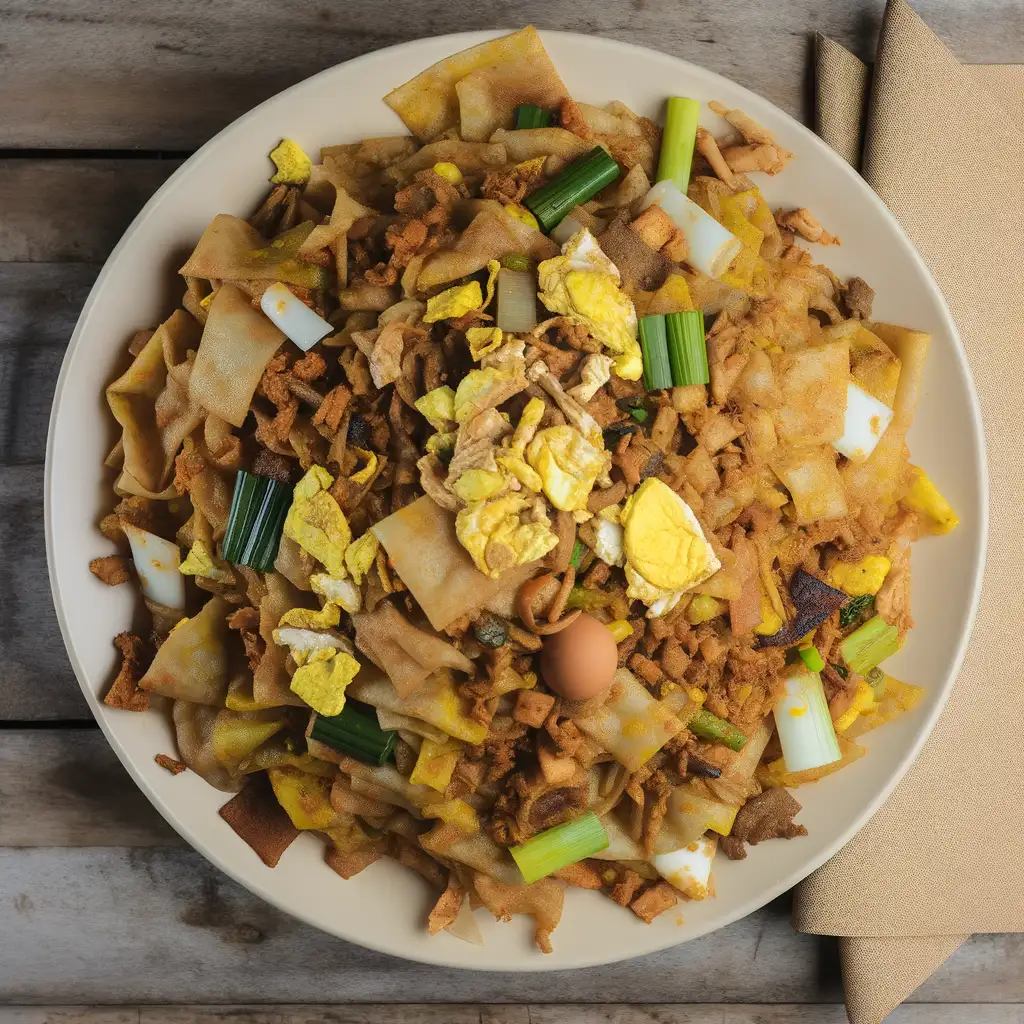



If you ever find yourself craving a breath of fresh,cool mountain air mixed with the gentle hum of nature,Nuwara Eliya is where you want to be. This place feels like stepping into a timeless postcard—rolling green tea plantations stretch as far as the eye can see,their leaves shimmering under soft,misty sunlight. The air carries a crispness that instantly wakes you up,mingled with the faint,earthy scent of damp soil and blooming flowers. It’s a peaceful kind of energy,where mornings start with the cheerful chatter of birds and evenings settle into a cozy quiet,perfect for a slow stroll. What really makes Nuwara Eliya stand out is its charming blend of colonial history and local Sri Lankan culture. The town’s quaint bungalows and old-world architecture give it a nostalgic vibe,while the bustling markets and friendly locals remind you you’re in the heart of Sri Lanka. Don’t miss wandering through the vegetable markets or sipping a cup of freshly brewed Ceylon tea right where it’s grown—there’s something magical about tasting the landscape itself. And the food! Imagine biting into a warm,spiced hoppers or savoring a plate of fresh mountain vegetables,all while wrapped in a light mist that cools your skin. Whether you’re hiking up to a waterfall,exploring the botanical gardens,or just sitting by Gregory Lake watching rowboats drift lazily by,Nuwara Eliya invites you to slow down and soak in its gentle rhythms. It’s a place that stays with you long after you leave,whispering stories of nature,history,and simple joys.
The information on this page is currently being reviewed by Tripkliq and should be used as a guide only
Eng word: Hello
Eng pronunciation: Vanakkam
Local language: வணக்கம்
Eng word: Goodbye
Eng pronunciation: Priyavidai
Local language: பிரியாவிடை
Eng word: Thank you
Eng pronunciation: Nandri
Local language: நன்றி
Eng word: How much
Eng pronunciation: Evvalavu
Local language: எவ்வளவு
Eng word: Toilet
Eng pronunciation: Kazhipparai
Local language: கழிப்பறை
Eng word: Help me
Eng pronunciation: Enakku Udhavungal
Local language: எனக்கு உதவுங்கள்
Eng word: Yes
Eng pronunciation: Aam
Local language: ஆம்
Eng word: No
Eng pronunciation: Illai
Local language: இல்லை
Eng word: Excuse me
Eng pronunciation: Mannikkavum
Local language: மன்னிக்கவும்
Nuwara Eliya was founded by Samuel Baker, an explorer and hunter, in 1846. He is also known for discovering Lake Albert in Africa.
The city is renowned for its well-preserved colonial architecture, including the Grand Hotel, which was originally the residence of the Governor of Sri Lanka.
Nuwara Eliya is famous for its tea plantations, which were established by the British in the 19th century. The region produces some of the finest Ceylon tea in the world.
Gregory Lake was created in 1873 by Governor William Gregory. It is a popular spot for boating and picnics, offering stunning views of the surrounding hills.
Established in 1861, the Hakgala Botanical Garden is one of the oldest botanical gardens in Sri Lanka. It is home to a wide variety of flora, including many species of orchids and roses.
Built in 1894, the Nuwara Eliya Post Office is one of the oldest post offices in Sri Lanka. Its Tudor-style architecture makes it a notable landmark in the city.
The Nuwara Eliya Golf Club, established in 1889, is one of the oldest golf clubs in Asia. It offers a challenging course set amidst beautiful scenery.
St. Xavier's Church, built in 1838, is one of the oldest churches in Nuwara Eliya. It is known for its beautiful stained glass windows and serene atmosphere.
Victoria Park was established in 1897 to commemorate Queen Victoria's Diamond Jubilee. It is a popular spot for bird watching and leisurely walks.
In Nuwara Eliya District, the most common Power Adaptor is Type D, Type G.



A street food favorite made from chopped roti mixed with vegetables, eggs, and a choice of meat, all stir-fried on a hot griddle, creating a deliciously savory dish.
.webp)
A popular Sri Lankan dish made from fermented rice flour, shaped into a bowl and cooked until crispy, often served with a variety of fillings or toppings like egg or coconut milk.

A flatbread made with flour, grated coconut, and water, often enjoyed with curries or as a snack on its own.

A sweet and tangy jam made from fresh strawberries grown in the cool climate of Nuwara Eliya, often enjoyed with toast or as a topping for desserts.

A traditional meal consisting of steamed rice served with a variety of curries, including vegetable, fish, and meat options, often accompanied by sambol and pickles.

A traditional dish made from rice flour and grated coconut, steamed in cylindrical molds, often served with curry or coconut milk.

A Dutch-influenced dish consisting of rice cooked in meat stock, served with a variety of meats, vegetables, and a boiled egg, all wrapped in a banana leaf and baked.
If you step into Colombo District,you immediately feel the pulse of a city that’s both vibrant and laid-back,where old-world charm meets modern hustle. Imagine walking along bustling streets lined with colonial-era buildings,their faded facades telling stories of a rich past,while sleek glass towers rise nearby,reflecting the tropical sun. The air carries a mix of scents—spices from street food stalls,salty sea breeze from the nearby coast,and the faint aroma of jasmine from roadside vendors. It’s a place where the sounds of honking tuk-tuks blend with the call to prayer and the laughter of children playing in small parks.
Colombo’s character is a beautiful mosaic of cultures. You’ll find Buddhist temples nestled beside mosques and churches,and markets where Tamil,Sinhalese,and Muslim communities come together in a colorful dance of languages and traditions. The city’s food scene is a feast for the senses—imagine biting into a crispy hopper drizzled with coconut sambol or sipping on a strong,sweet Ceylon tea while watching the sunset over Galle Face Green,where locals fly kites and families gather to unwind.
What makes Colombo truly special is its warmth. Despite the city’s fast pace,there’s a genuine friendliness in the smiles of shopkeepers and the inviting chatter in cafés. It’s a place where you can lose yourself in vibrant street art one moment and find quiet reflection in a serene temple garden the next. Colombo isn’t just a destination; it’s an experience that stays with you long after you leave.
If you find yourself wandering through Sri Lanka,Galle District feels like stepping into a storybook where history and everyday life dance together effortlessly. The moment you arrive,there’s this warm,salty breeze carrying the distant chatter of fishermen and the rhythmic crash of waves against ancient fort walls. It’s a place where time slows down just enough for you to savor the vibrant colors of colonial buildings,their shutters flung open to reveal cozy cafes brewing rich Ceylon tea and the scent of freshly baked pastries. Walking through the cobbled streets of Galle Fort,you can almost hear whispers of centuries past mingling with the laughter of locals and the clinking of glasses as the sun dips low.
What really makes Galle special is its blend of cultures and the genuine warmth of its people. You’ll find artists sketching by the sea,street vendors selling spicy kottu roti that fills the air with tantalizing aromas,and markets bursting with tropical fruits so fresh they almost taste like sunshine. The district’s coastline is a playground of turquoise waters and golden sands,perfect for a lazy afternoon swim or a sunset stroll where the sky blushes in shades of pink and orange.
Beyond the fort,the landscape unfolds into lush tea plantations and quaint villages where life feels beautifully unhurried. Galle isn’t just a place to visit—it’s a place to feel alive,to connect with a rich tapestry of history,culture,and nature that stays with you long after you’ve left.
If you ever find yourself craving a place where history hums softly through the air and nature wraps you in a cool,misty embrace,Kandy District in Sri Lanka is where you want to be. The moment you step into Kandy,there’s this gentle buzz—a mix of temple bells,chattering markets,and the rustle of leaves from the surrounding hills. It’s a city that feels alive but not rushed,like it’s inviting you to slow down and soak in its stories.
Walking through Kandy,you’ll catch the scent of jasmine and incense drifting from the Temple of the Tooth,a sacred spot that pulses with spiritual energy. The streets are lined with colorful stalls selling fresh tropical fruits,spicy street food,and handwoven textiles,tempting your senses at every turn. Don’t miss trying a cup of Ceylon tea here—rich,fragrant,and perfectly brewed,it’s like tasting a piece of the island’s soul.
What makes Kandy truly special is how it balances vibrant culture with breathtaking nature. Nestled among emerald hills and shimmering lakes,it’s a place where you can explore bustling markets one moment and find yourself wandering peaceful botanical gardens the next. The locals’ warmth and pride in their heritage shine through in traditional dance performances and festivals,making you feel like you’re part of something timeless. Honestly,Kandy isn’t just a destination—it’s an experience that lingers long after you leave.
If you ever find yourself craving a place where the ocean feels endless and the air hums with a gentle,salty breeze,Trincomalee is where you want to be. This coastal town in Sri Lanka has this laid-back charm that instantly slows your pace. Imagine waking up to the soft lapping of waves against golden shores,the sun casting a warm glow over turquoise waters so clear you can spot colorful fish darting beneath the surface. It’s the kind of place where mornings start with the scent of fresh seafood grilling nearby and the distant call of fishermen heading out to sea.
Trincomalee’s character is a beautiful blend of history and culture. The ancient Koneswaram Temple perched on a cliff offers not just spiritual calm but breathtaking views that make you pause and breathe it all in. Walking through the town,you’ll hear a mix of Tamil and Sinhala chatter,the clatter of markets bursting with tropical fruits,and the occasional rhythm of traditional drums. The local food scene is a vibrant adventure—think spicy crab curries,tangy sambols,and sweet,creamy king coconut water that refreshes you like nothing else.
What really stays with you is the genuine warmth of the people and the way the town feels alive yet unhurried. Whether you’re snorkeling in Pigeon Island’s coral gardens or simply watching the sunset paint the sky in fiery hues,Trincomalee invites you to slow down,soak up its rhythms,and leave with a heart full of stories.
If you ever find yourself in Sri Lanka,you absolutely have to spend some time in Negombo. The moment you arrive,there’s this laid-back coastal rhythm that wraps around you like a warm breeze. It’s a place where the ocean’s salty tang mingles with the scent of fresh spices from the bustling markets,and the chatter of fishermen mending their nets creates a soundtrack that feels both timeless and alive. Walking along the beach at sunset,you’ll see colorful fishing boats bobbing gently on the water,their bright hues reflecting the fiery sky.
Negombo’s charm lies in its blend of old and new. The city wears its history proudly,with colonial-era churches standing tall alongside vibrant street markets where vendors call out,selling everything from tropical fruits to freshly grilled seafood. The aroma of sizzling prawns and coconut-infused curries drifts through the air,tempting you to stop and savor the local flavors. It’s a place where you can sip a cup of strong,sweet Ceylon tea while watching the world go by,or dive into a plate of spicy crab that’s been caught just hours before.
What really makes Negombo special,though,is its people. Warm,welcoming,and full of stories,they add a genuine heart to the city’s character. Whether you’re wandering through the fish market at dawn or exploring the quiet canals that earned it the nickname “Little Venice,” you’ll feel like you’re stepping into a living,breathing story. Negombo isn’t just a stopover; it’s a place that invites you to slow down,breathe deeply,and soak in the simple,beautiful pulse of Sri Lankan coastal life.
If you ever find yourself craving a place where history hums softly beneath the warm sun and the air carries the scent of salty sea breeze mixed with fragrant spices,Jaffna District in Sri Lanka is where you should go. The moment you step into Jaffna,there’s this gentle rhythm to life — a blend of old-world charm and vibrant local energy that feels both peaceful and alive. The streets buzz with colorful markets where vendors call out,selling everything from fiery red chilies to freshly caught seafood,while the aroma of roasting curry leaves and coconut fills the air.
What really makes Jaffna stand out is its rich Tamil culture,which you can see in the intricate carvings of ancient temples and taste in the unique flavors of Jaffna cuisine — think tangy crab curry,crispy hopper pancakes,and sweet,milky Jaffna-style tea that warms you from the inside out. The people here are incredibly welcoming,their smiles genuine,and their stories woven into the fabric of the city’s character.
Beyond the city,the landscape unfolds into serene lagoons and sun-drenched beaches where the turquoise water laps gently against the shore. It’s a place where time slows down just enough for you to soak in the vibrant colors of a sunset or the quiet hum of a temple bell. Visiting Jaffna feels like stepping into a living story — one that invites you to explore,taste,and connect with a culture that’s both ancient and wonderfully alive.
Unlicensed money changers may offer poor exchange rates or shortchange tourists during currency exchanges.
Scammers may approach tourists claiming to collect donations for local schools or charities, but the money is pocketed instead.
Scammers may pose as officials at tourist attractions and charge fake entrance fees for sites that are actually free or have lower official fees.
Individuals may pose as official tour guides and charge high fees for providing inaccurate or unnecessary information.
Shops may sell fake or low-quality gemstones at high prices, claiming they are rare and valuable.
Tourists may be overcharged for horse rides around Gregory Lake or other scenic areas, with prices significantly higher than the standard rates.
Tourists may be approached by individuals claiming their hotel booking is invalid and offering to take them to a 'better' hotel, which is often overpriced or of poor quality.
Tuk-tuk drivers may overcharge tourists by quoting inflated prices or taking unnecessarily long routes.
Locals may offer photo opportunities with animals or traditional costumes and then demand exorbitant fees afterward.
Some tea shops or plantations may sell low-quality tea at premium prices, claiming it to be authentic Ceylon tea.
The use, possession, and trafficking of illegal drugs are strictly prohibited in Nuwara Eliya District and throughout Sri Lanka. The country has stringent anti-drug laws, and violations can result in severe penalties, including long prison sentences and heavy fines. Tourists should avoid any involvement with illegal drugs to avoid serious legal consequences.
In Nuwara Eliya District, as in the rest of Sri Lanka, smoking is prohibited in public places such as restaurants, public transport, and government buildings. There are designated smoking areas where smoking is allowed. Violating these regulations can result in fines. Tourists should be mindful of these rules to avoid penalties.
Vaping is subject to similar regulations as smoking in Nuwara Eliya District. It is prohibited in public places and on public transport. There are no specific laws that differentiate vaping from smoking, so it is advisable to use designated smoking areas for vaping as well. Tourists should be cautious and follow the same guidelines as for smoking.
What are other people saying about Nuwara Eliya District?
Recent Social posts about Nuwara Eliya District
There is nothing to show you for now.